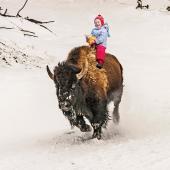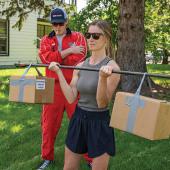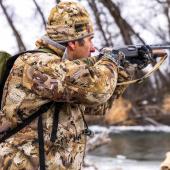Back on the Horse
Breaking through barriers after an injury.
Resilience (noun): the ability to adapt in the face of tragedy, trauma, adversity, hardship, and ongoing significant life stressors.
Resilience is a vital characteristic in recovering from sports injuries. Like most runners, I’ve experienced the twisted ankle or cranky fasciitis that derailed my aerobic activities. But two failed ACLs brought me to a halt, punctuated by two different surgeons suggesting a total knee replacement, with the possibility of never running again. This experience led me to investigate the mental challenges of recovery—the dark side of injury.
The uncertain future of returning to sport after an injury has received its own clinical diagnosis: sports-injury depression. Look closely, and a cycle emerges. First, a somewhat morbid excitement about the surgery, followed by diligence in rehab. Then, after endless icing and bending fails to produce results, there’s a downward spiral; and in the worst of circumstances, a gloomy loss of hope of ever returning to one’s former self.
Every individual has a different path to physical and mental recovery.
Running had dictated my schedule, social groups, and even vacations—tinting my identity for most of my adult life. I defined myself as a runner until, suddenly, I wasn’t. Only with this realization did I comprehend what a significant cornerstone running held for me mentally. I often joked with my core group of running friends about the money we’d saved on counseling, swapped out for snarky bitch-sessions on the trails. Truly healing therapy.
Besides missing the busy chatter of our training runs, I felt an increasing discrepancy between my vision for future running and reality. My first month of rehab coincided with my running crew’s preparation for a half-marathon trail run. I scrolled through social-media pictures of their post-race antics while hobbling around on icy sidewalks, heading towards another painful day. Would those much-anticipated races, circled on the calendar and diligently trained for, be omitted entirely from my future?
Not having my usual mental crutches to rely on, I pored over Dr. Kevin Stone’s book, Play Forever: How to Recover from Injury and Thrive. Stone encourages patients to think of themselves as athletes in training, not as patients in rehab. This change in mindset allowed me to find creative ways to train and welcome downtime as a gift.
As a personal trainer, I felt a new empathy for my clients, who often struggle with reaching their unique fitness goals by overcoming emotional and physical hurdles.
I quickly learned that every individual has a different path to physical and mental recovery. Comparing oneself to others’ progress is a recipe for frustration. Working with a great physical therapist, I strived to protect my injured knee while encouraging muscle growth in the rest of my body. One of the things I missed most during my recovery was a good, soaking sweat. Besides the physiological benefits, sweating increases the production of endorphins and other feel-good chemicals, like dopamine and serotonin. As soon as I had enough range of motion to ride a bike, I cycled daily in a hot sauna. Seeing the wet lycra accumulate in my laundry room made me a bit happier. Another game-changer was running on an anti-gravity treadmill. It felt like I was running in a former 20-something body, blasting rock music in my earbuds and touching a special memory of who I used to be.
As a personal trainer, I felt a new empathy for my clients, who often struggle with reaching their unique fitness goals by overcoming emotional and physical hurdles. Surrounding oneself with happy, supportive people is critical. I returned to work three weeks post-op, tugging me out of my self-absorption. I also realized that when one aspect of life is diminished, others become more activated. More downtime and less preoccupation with recovery bolstered me in tackling my last semester of graduate work—although doing statistics on pain meds proved challenging.
Fast-forward to six months post-op, when I pinned on a bib in this year’s inaugural beer run. I’m not seeing any podium finishes in my future, but my awkward, 12-minute-mile walk-jog left me with a smile, and made me think of a quote from Angela Duckworth’s book, Grit: “To be gritty is to fall down seven times and rise eight.”
Maury Wiegand is a personal trainer who recently finished a master’s degree in Public Health. She also can’t wait to say that she just finished her latest 10k, 5k, or even a quick loop around the block.












